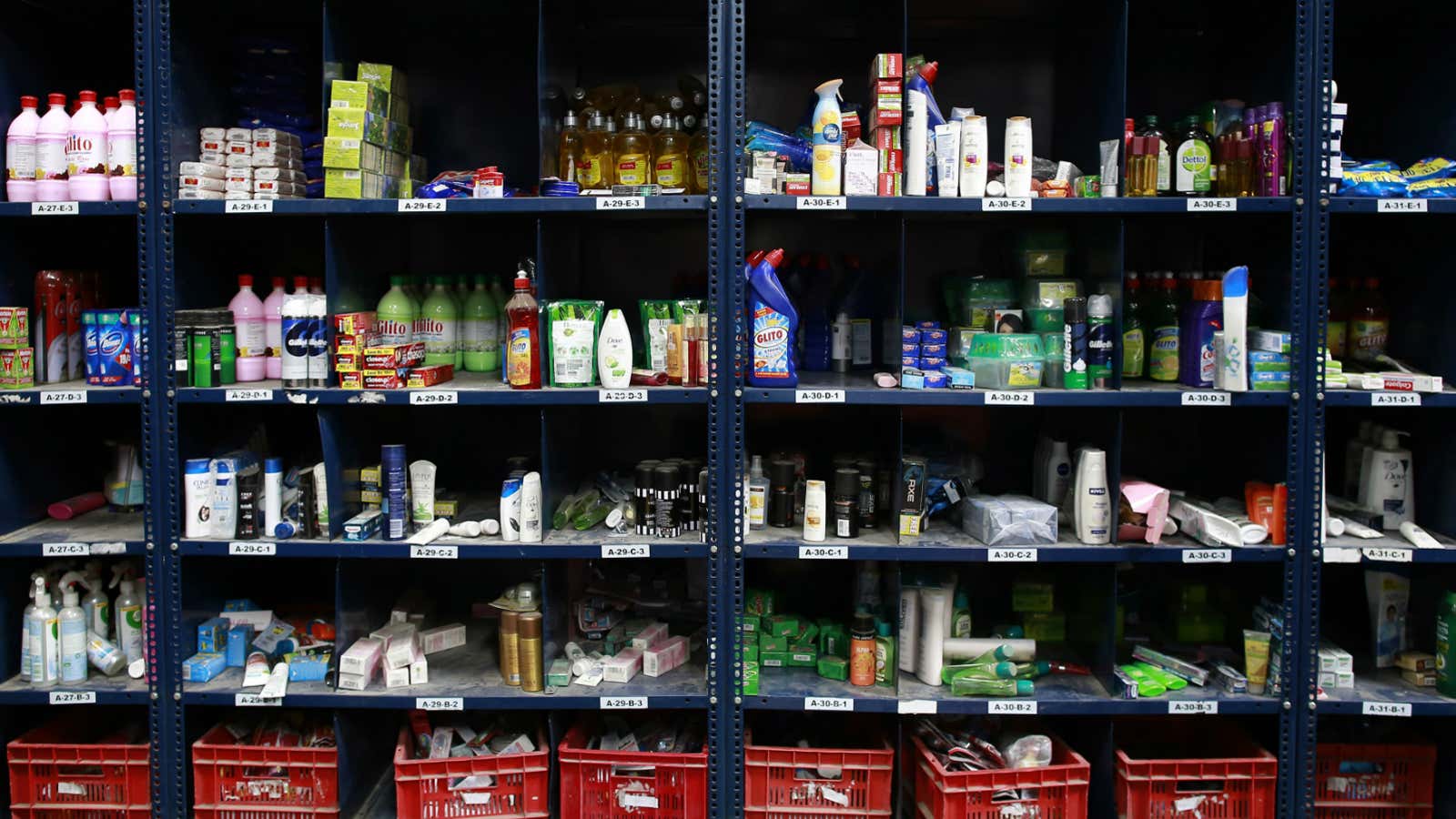Demonetisation took a toll on India’s largest fast-moving consumer goods company.
On Jan. 23, Hindustan Unilever (HUL), which sells everything from Lux soaps to Knorr soups, reported a 4% decline in sales volumes for the quarter ended Dec. 31, a period marked by the government’s decision to pull out 86% of India’s currency by value. The move sparked a nationwide cash crunch that severely hit consumer demand.
While HUL’s quarterly net profit rose due to income from the sale of properties, the company would have recorded a 10% fall excluding this one-time gain. Its income declined by 0.8% to Rs8,318 crore in the same period.
Executives at the company noted that demonetisation posed a serious obstacle to recovery in the consumer sector.
“August, September and October were better than July and the market was recovering from the slowdown it was seeing earlier, thanks to a good monsoon and salary hikes initiated by the government. Demonetisation, however, did halt growth temporarily during the December quarter,” said Sanjiv Mehta, managing director and chief executive officer at HUL.
HUL’s results echo the overall grim situation in India’s consumer goods sector as cash-strapped consumers focused on essentials items only, deferring other purchases. The industry lost as much as Rs3,840 crore in sales, or 1.5%, for the month of November, according to estimates by research agency Nielsen.
Last week, the world’s largest consumer goods maker, Proctor & Gamble (P&G), also pointed out the “negative impact” of demonetisation on its business.
“(In) India, demonetisation, the elimination of Rs500 and Rs1,000 bank notes, that accounted for over 80% of that country’s currency in a cash-dominated economy, was an unexpected headwind,” chief financial officer Jon Moeller said during the company’s global earnings call on Jan. 20.
“It was flowing high single-digits growth last quarter to a decline of high singles this quarter,” Moeller added.
The FMCG trade is heavily cash-dependent in India and demonetisation hit small traders and wholesalers particularly hard. Nielsen estimated that business across small traders and wholesalers fell by at least 60% in the two weeks following the Nov. 08 decision.
However, with cash now back in circulation in the economy, companies are anticipating a gradual recovery in the market.
“We’re still assessing how long the pain will last. But broadly, pipeline issues should ease by the first quarter of the next financial year,” HUL’s Mehta said.




